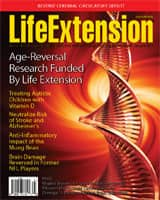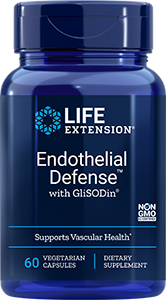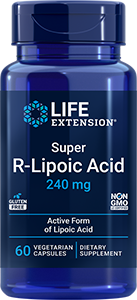Curcumin sensitizes colon cancer cells to chemotherapy
Friday, January 17, 2014. An article published in the journal PLOS One reports the finding of Mehdi Shakibaei of Ludwig Maximilian University in Munich, Germany and colleagues of a chemosensitizing benefit for curcumin, a compound occurring in turmeric, in colon cancer cells resistant to treatment with the chemotherapy drug 5-fluorouracil (5-FU). Resistance to 5-FU occurs in as many as 15% of colorectal cancer patients, and the rate of recurrence is estimated to be as great as 50% to 60%, due in part to cancer stem cell survival.
The current study utilized cultures of two high density colorectal cell lines that were sensitive to 5-fluorouracil and cultures of their 5-FU resistant clones. One of the two non-resistant lines and its resistant clone were deficient in their DNA mismatch repair (MMR) systems, which results in genetic instability, increased susceptibility to neoplastic transformation and greater development of chemoresistant cells. Cells were treated with varying concentrations of 5-FU or BCM-95 curcumin, or received pretreatment with curcumin followed by exposure to one of four concentrations of 5-FU.
While 5-FU dose-dependently reduced the proliferation of the non-resistant cell lines, curcumin alone decreased proliferation in all cell lines, showing the most significant effects in the lines that were not MMR-deficient. Pretreatment with curcumin four hours prior to 5-FU administration revealed a benefit in 5-FU sensitive as well as resistant cells after 24 hours. Either treatment or their combination also decreased markers of cancer stem cells in all lines, with the greatest benefit observed in association with combination therapy.
"Our results demonstrate that with curcumin the proliferation of MMR-deficient and proficient colorectal cancer cells as well as their corresponding 5-FU resistant derivatives was suppressed and the effect of 5-FU was potentiated in a dose-dependent manner, thereby reducing the proliferation of colorectal cancer cells significantly," the authors write. "We demonstrate that curcumin potentiated the antitumor effects of 5-FU in the parental as well as the 5-FU resistant derivatives of these cells in a three dimensional high density environment resembling the in vivo situation."
"In this report, we provide novel evidence and previously unrecognized effects of curcumin, showing that curcumin individually or in combination with the conventional colon cancer chemotherapeutic agent 5-FU could serve as an effective therapeutic strategy to prevent the emergence of chemoresistant colon cancer cells by reducing cancer stem cells," they conclude. "Our data suggest that a combination treatment of phytochemicals together with conventional chemotherapeutic agents can be very beneficial for the patients in enhancing the clinical therapy and simultaneously reducing side effects through lower dosage requirements."
|
 |
What's Hot
The November, 2013 issue of The Journal of Cancer published the results of research that uncovered a significant effect for a cocktail of six plant compounds in inhibiting the growth and survival of cultured breast cancer cells.
"We hypothesized that a super combination of known phytochemicals used at bioavailable levels could induce 100% killing of breast cancer cells without toxic effects on normal cells and that microarray analysis would identify potential genes for targeted therapy of breast cancer," Dr Raj and his coauthors write. The team compared the effects of a control substance to a combination of curcumin, genistein, indole-3-carbinol, C-phococyanin from spirulina, resveratrol and quercetin in two breast cancer cell lines as well as in cultured noncancerous stem cells. They observed an 80% inhibition of migration and invasion, and the initiation of apoptosis that resulted in the death of 100% of the breast cancer cells treated with the compounds, while treated control cells remained unharmed. Several genes were identified whose expression was downregulated, and four were identified that were highly upregulated in treated cancer cells.
The authors suggest that "Future experiments include animal studies using mouse xenograft model to evaluate the in-vivo toxicity and efficacy of the phytochemical super cocktail treatment to prevent and/or regress breast cancer tumors as well as possible use of the highly up-regulated novel genes as markers to follow-up progress of therapy."
"One of the primary causes of both the recurrence of breast cancer and deaths is a small group of cancer stem cells that evade therapy," commented lead researcher Raj Madhwa Raj, PhD, of Louisiana Health Sciences Center in New Orleans. "These often multi-drug-resistant cells have the ability to generate new tumors, so it is critically important to develop new approaches to more effective and safer treatment or prevention of breast cancer."
|
 |
Highlight
Life Extension Magazine® January 2014 Issue

- On the Cover
- Reports
- Departments
- Journal abstracts
|
 |
Latest Products |
 |
|
The endothelium is the inner lining of the blood vessel that regulates arterial health. Maintaining its youthful integrity supports overall cardiovascular health as humans age.
This formula supplies two potent nutrients to support endothelial health: standardized pomegranate extract and an orally active form of superoxide dismutase (SOD).
- Pomegranate supports healthy blood flow.
- SOD protects against nitric oxide degradation. Aging results in a reduction of our body's production of the critical antioxidant called superoxide dismutase (SOD). One consequence of SOD depletion is excess degradation of endothelial nitric oxide. An orally active superoxide dismutase called GliSODin® has been clinically shown to support healthy arterial function and structure ... while boosting levels of the body's most powerful antioxidant enzymes (SOD and catalase).
|
| |
 |
|
The human body normally produces and uses the "R" form of lipoic acid. This active form, R-lipoic acid, significantly supports healthy inflammatory response, is a potent free-radical scavenger and has been shown to be more potent than the combined "R" and "S" forms that comprise most alpha-lipoic acid supplements.
Life Extension is continually searching for innovative nutritional technologies. Through dedicated research and development, the newer form of R-lipoic acid is being seen as the "next-generation" antioxidant powerhouse.
Life Extension's Super R-Lipoic Acid has demonstrated superior bioavailability, stability, and potency for a variety of health benefits. This breakthrough converts the biologically active "R" form of lipoic acid to sodium-R-lipoic acid, which, in a recent human study achieved 10–30 times higher peak blood levels than pure R-lipoic acid. Not only does this newer lipoic acid formulation reach higher peak blood levels, it also achieves them sooner, ensuring rapid uptake from the plasma into the tissues.
|
|
 |
Related Articles
|
Isocell SA, France is the owner of US Patents Nos. 6,045,809 and 6,426,068B1 and registered trademark of GliSODin®. |











